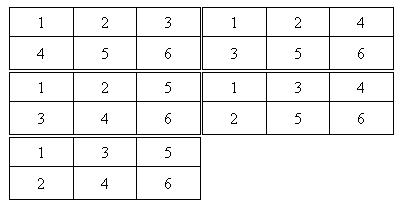Grids
Time Limit: 10000/5000 MS (Java/Others) Memory Limit: 65535/65535 K (Java/Others)
Problem Description
度度熊最近很喜欢玩游戏。这一天他在纸上画了一个2行N列的长方形格子。他想把1到2N这些数依次放进去,但是为了使格子看起来优美,他想找到使每行每列都递增的方案。不过画了很久,他发现方案数实在是太多了。度度熊想知道,有多少种放数字的方法能满足上面的条件?
Input
第一行为数据组数T(1<=T<=100000)。
然后T行,每行为一个数N(1<=N<=1000000)表示长方形的大小。
然后T行,每行为一个数N(1<=N<=1000000)表示长方形的大小。
Output
对于每组数据,输出符合题意的方案数。由于数字可能非常大,你只需要把最后的结果对1000000007取模即可。
Sample Input
2
1
3
Sample Output
Case #1:
1
Case #2:
5

Hint
对于第二组样例,共5种方案,具体方案为:
Source
思路:卡特兰数;
#include<bits/stdc++.h> using namespace std; #define ll long long #define pi (4*atan(1.0)) #define eps 1e-14 const int N=2e5+10,M=4e6+10,inf=1e9+10,mod=1e9+7; const ll INF=1e18+10; ll a[M]; ll inv[M]; void init() { inv[1] = 1; for(int i=2;i<=1000010;i++) { if(i >= mod)break; inv[i] = (mod - mod / i) * inv[mod % i]% mod; } } ll pows(ll a,ll b) { ll ans=1; while(b) { if(b&1)ans*=a,ans%=mod; a*=a; a%=mod; b>>=1; } return ans; } int main() { a[0]=1; init(); for(ll i=1;i<=1000000;i++) { a[i]=(((a[i-1]*(4*i-2))%mod)*inv[i+1])%mod; } int T,cas=1; scanf("%d",&T); while(T--) { int n; scanf("%d",&n); printf("Case #%d: %lld ",cas++,a[n]); } return 0; }